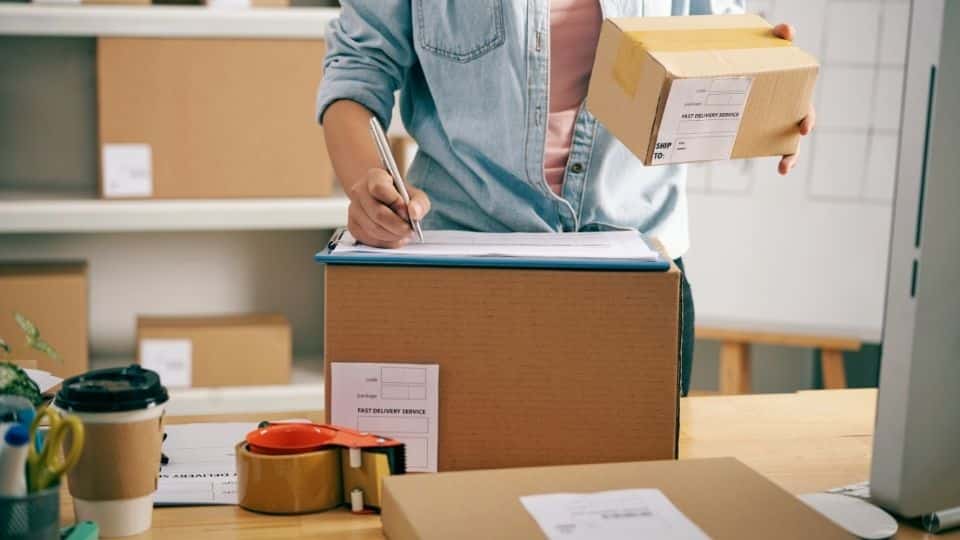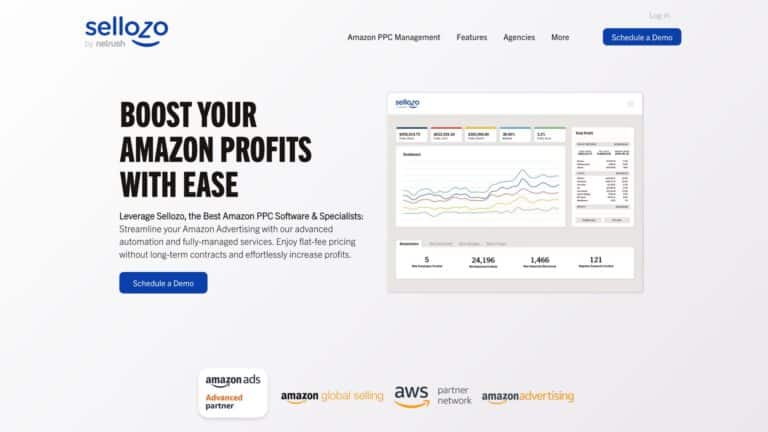If you already have a successful Amazon business but you want to move up to the next level then it is probably time to start looking to produce or manufacture your own private label products.
If you have not started on your Amazon journey and you are looking for the best way to maximize your profits, then this is it.
By researching, sourcing and manufacturing your own products and producing your own product line, you can build equity in your business and create your own brand.
In this article, you’ll learn everything about it. We are going to show you how to source, create and manufacture your own private label products for your Amazon FBA business.
What Is Private Label on Amazon FBA?
Private labelling is when a factory that already produces a generic product now produces it according to your requirements and adds your logo to it.
This is the same as supermarkets do with their own-brand products. Whether it is Walmart, Tesco or Cosco, they nearly all come out of the same factories but with different packaging and labelling.
By doing this, you
- save considerably on costs,
- cut out the middleman and
- gain control of the whole process, from farm to plate, as they say.
This also allows you to build your own supply chain so your business is not reliant on any third party.
With private labelling you can ‘customize’ the design and tweak it to better fit your consumers thereby differentiating your brand from others.
This may all sound very daunting and almost impossible but it is not.
Private labelling as a business model has been about since the beginning of capitalism and is one of the most profitable models to follow, that’s why so many retailers from electronics to clothing stores use it.
So why aren’t more people selling private label products?
Simply because they are discouraged by the seeming impossibility of the task.
They don’t know how to find a manufacturer, how to customize their product or how to explain their needs to the manufacturer.
But it is not as hard as it may seem.
In fact, if you already have a successful Amazon business you’re more than halfway there already.
Amazon Private Label Selling vs. White Label – What’s the Difference?
Even though it’s often used as a synonym, it’s actually not quite the same.
- Private Labelling – Private labelling refers to the scenario when a factory or manufacturer produces a generic product that you can customize according to your own requirements and add your label or branding to the product.
- White Labelling – White labelling on the other hand means different brands buy the exact same product and just add their own branding to it, you can modify your private label product.
An example: a manufacturer produces shower gel with strawberry scent for women and sells it as white label product.
Now different companies can purchase that product and sell it under their brand name, with their own packaging and brand message. The product, however, is 100% the same.
If you’re selling a private label product, you can tell the manufacturer to add some raspberry scent, make it more foamy and add some glitter to the product – you now have a unique product. Then, you can sell it under your own private label brand.

Private Label for Amazon – The Pros & Cons
Pros of Private Label on Amazon
- Control the Whole Supply Chain – One of the biggest advantages of this is that you are no longer reliant on your supplier and their whims as you will control the whole supply chain.
- Extra Value – You can also offer ‘your’ brand as an ‘exclusive’ to your store giving it extra value in the eyes of the consumer. Even when your brand is new or young, branded products generally sell for more than non-branded products.
Cons of Private Label on Amazon
However, despite the numerous advantages, there are also inherent risks to producing your own products.
- Good Supplier – First, you need to find a trustworthy and reliable manufacturer who already has a track record of producing similar products.
- Ensure Quality – Secondly, if you want to build your own brand you need to ensure your product is made to a better quality than your competitors.
- Financial Risks – There’s also the financial risk, as you will need to partially pay for the production run upfront.
This is obviously a big undertaking and is why vetting and verifying your manufacturer is so important.
But if you follow our guidelines you should be able to find a suitable manufacturer who can help keep your costs down and provide you with a reliable service.
3 Steps to Becoming a Successful Amazon Private Label Seller
1. Product Research
If you already have a successful Amazon store with generic products, then you should use the products you are already selling as prototypes for your manufacturer.
However, you need to be careful: Do not copy the exact design.
- Make a few upgrades and changes to differentiate it.
- Pay attention to customer reviews on your own and your competitors’ listings. What are customers complaining about? What features would they like to have? The review sections are one of the most important sources of information.
If you don’t have a successful product yet, then you will need to fully research Amazon’s Best Sellers List, Keywords etc. to find trending and popular products.
When researching a product you need to analyze a number of aspects, including:
- Keywords – The top three should add up to more than 50,000
- Best Seller Ranking– < 5000
- Profit Margin – 25-30%
- Reviews – 25> <200
- Sales – 10> sales per day
- Competitors – How many competitors are there?
- LQS (Listing Quality Score) – < 3
2. Finding a Reliable Manufacturer
Once you’ve decided what you want to sell, you need to decide where you want to find a manufacturer because there are several options.
Most people automatically go to a manufacturing company in China.
However, you should fully research your options because there are many countries and manufacturers where you can get private label products made.
Here are a few other options:
- India
- Taiwan
- Indonesia
- Vietnam
- Mexico
- Japan/Korea
- United States
All of these countries offer great advantages over China to find a manufacturer, but they also each have their own downsides.
Indonesia, Taiwan and Vietnam are great sources with unique products and the shipping can be up to 50 % lower, but the quality isn’t quite up to the standard of manufacturing companies in China.
Plus, they often can’t offer you the same volume of business.
Mexico is closer to the Western markets, so it has cheaper, quicker shipping.
However, as with Indonesia, Taiwan and Vietnam, you could face some downsides here as well: Less volume, lower quality and less choice.
When looking for your manufacturer and where you want your product made other factors to consider are:
- Language – How good is their English? Will you need a middleman for communication
- Transit/Shipping Costs – How much does it cost to get your product to the target country?
- Transit time – How long does it take to replenish stocks? The longer it takes to replenish stocks, the more inventory you will need to keep.
- Bribes – Is bribing inherited in the business culture? How would you deal with that?
You should also check out local manufacturers who can produce private label goods, you will be surprised how competitive they can be, especially considering you won’t need to worry about customs fees, shipping costs and transit times etc.
One of the best ways for finding manufacturers is using reliable sourcing agents.
They have a huge network of suppliers they can refer you to and usually, they can also handle supplier negotiations for you.

3. Vetting the Manufacturer
When vetting a manufacturer, there are several things you need to analyze thoroughly, including:
- Do they have experience with the product you are looking for?
- Are you getting good value for money?
- Are there any minimum order quantities?
- Do they offer a bulk discount?
- Can they send samples of your product?
- Are they willing to sign an NDA?
- Are they fine with being controlled by a third party inspection?
When vetting your manufacturer make sure they have experience making the product you want and ask to see samples of these.
If possible, visit the factory to see first hand, otherwise, you can hire an independent third-party quality inspection company.
Check the quality, and make sure somewhere along with the supply change there is some form of quality control.
Otherwise, it will be sent from the factory to Amazon FBA and to the customer without any checks and the first you will know there’s a problem is when you start getting negative feedback.
Most manufacturers will require you to pay for your first production run upfront so you need to try and negotiate as small as a minimum order as possible without risking quality.
Make sure shipping liabilities are clear beforehand or you could end up with a bill a lot bigger than you were expecting.
Conclusion: Private Label Selling as the Ultimate Game Changer on Amazon FBA
In conclusion, producing your own private label products is the pinnacle of being a top seller on Amazon and it should be your end goal.
Is it hard?
Sure.
But anything worth doing takes work and effort.
However, you are not on your own.
There are many professional sourcing services out there that will help you find, vet and choose the best manufacturer to fit your needs and requirements.




